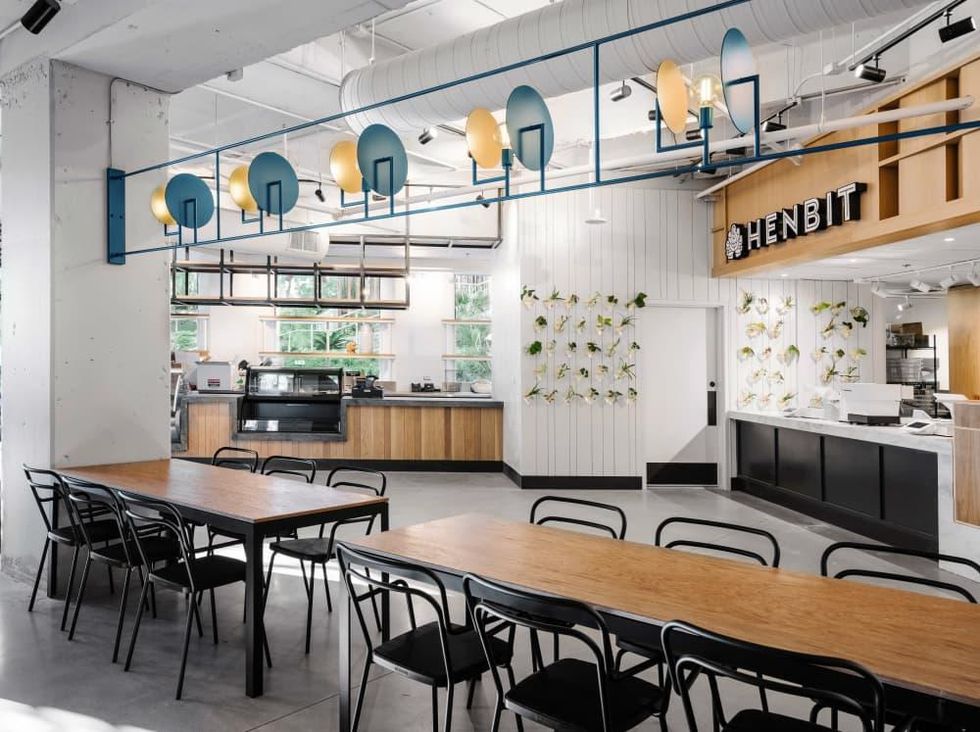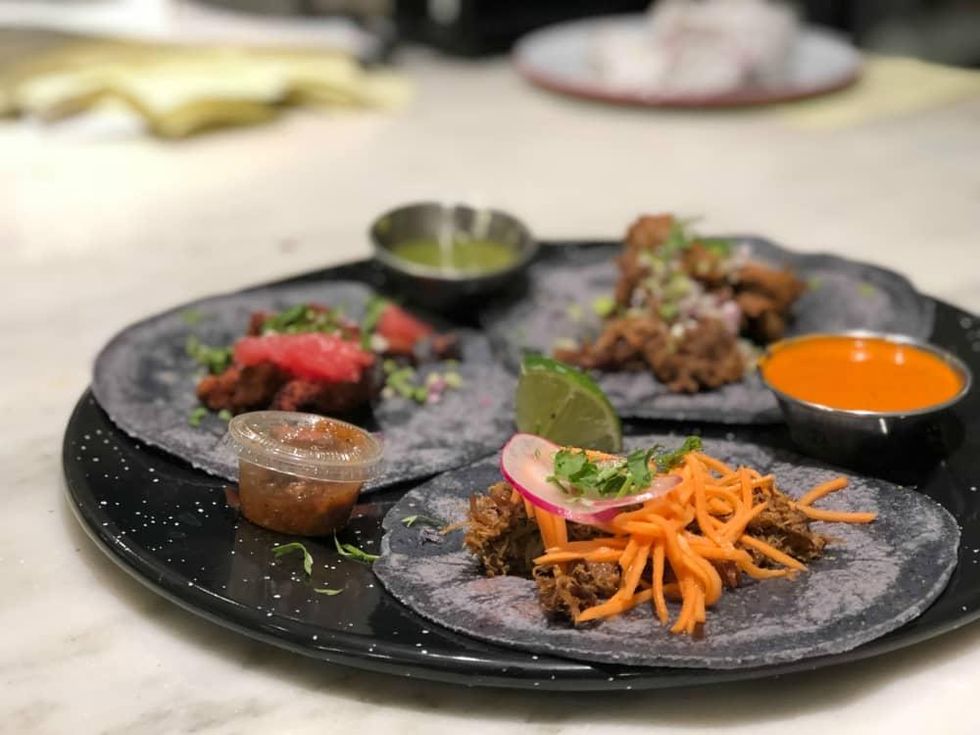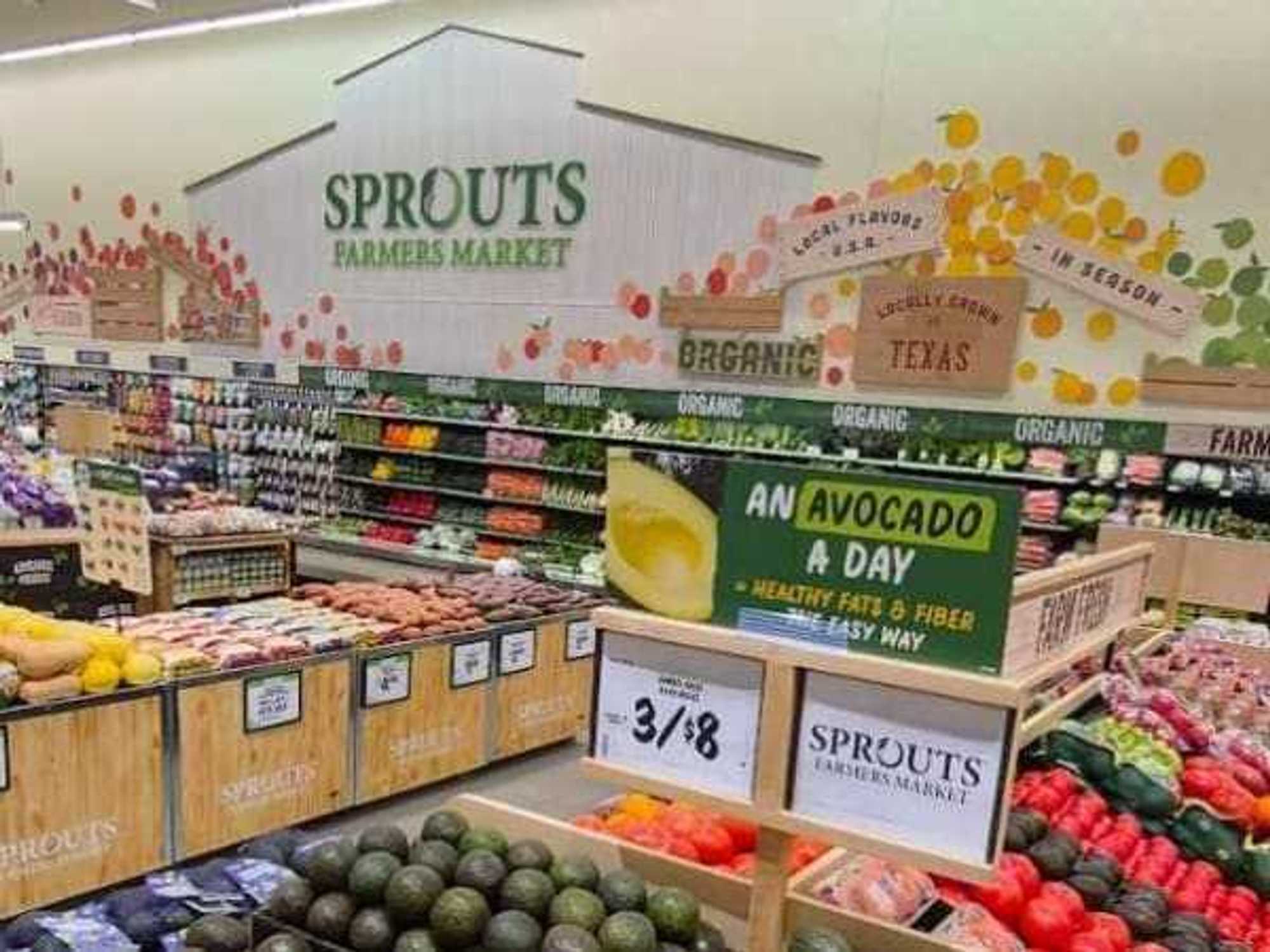Behind the line
Austin's top chefs are speeding up slow food at downtown's new food hall
In curating vendors for Fareground, downtown Austin's new food hall, ELM Restaurant Group focused on finding local gems who could offer fast service and quality dishes to the masses.
Three of the vendors — Contigo, Ni-Kome, and Easy Tiger — seemed natural fits, having long mastered the art of the tight turnaround at their high-volume restaurants and catering businesses. Antonelli’s Cheese Shop's move to simple, high-quality prepared foods seemed like a no-brainer, too. But Dai Due and Emmer & Rye, two of Austin’s most acclaimed high-end restaurants, seemed to be taking a huge leap.
The ethos behind Dai Due is rigorous — chef and owner Jesse Griffiths never cheats in his mission to source regional game, produce, and staple ingredients. Likewise, Emmer & Rye's much-lauded team of chefs Kevin Fink, Page Pressley, and Tavel Bristol-Joseph not only obsess over where the ingredients come from but also how they are presented on the plate.
By making the move into fast-casual service, Dai Due Taquería and Emmer & Rye's newest venture, Henbit, are tasked with bringing the same attention to detail and thoughtful sourcing to a high-volume, lightning fast environment.
Can the food providers that allow for stalls like Henbit and Dai Due Taquería to exist keep pace with the growing demand for fresh, local, and sustainably sourced ingredients? If so, can guests at the new food stalls reasonably expect the attention to detail and artistry found in their standalone counterparts?
“That’s the million dollar question,” says Griffiths. “Our goal is that we want to take this ethos and these ethical approaches to sourcing to another level, but it’s not gonna be easy. It’s gonna take a lot of education. But at the lunch rush, you don’t have time to educate. It’s gonna be unspoken and they may not absorb it, but you have to assume that your food is gonna nourish them in some energetic way,”
Dai Due Taquería — whose menu is co-designed by Griffiths and chefs Gabe Erales and Mike Diaz — may be suffering from an embarrassment of riches. After selling a thousand tacos on its first Saturday, it had to close on Tuesday due to demand. “By [last] Monday night, it was just pointless,” says Griffiths. “There was nothing left on the menu. So I said shut it down until all my deer came in the next day, and then we pulled an overnighter and had stuff ready for Wednesday morning. We’ve got our fingers crossed that it’s gonna last us ’til next Tuesday, ‘cause that’s all we can get.”
Even a few years ago, businesses like Dai Due Taquería or Henbit were unimaginable. But an influx of locavore chefs and maverick Central Texas producers has changed the game.
“Ten years ago the food system here was — you go to the farmers market, you buy all the chickens, which was like eight of them, [and] that was it,” says Griffiths. “Now we’re at a point where I can order 80 chickens to be here tomorrow, and feed that to 200 people, and it’s what we’ve wanted all along. We’re not compromising anything. The farmers have had to up their scale, and we’re now at that point.”
Of course, all of this effort to source his ingredients with such care would be worthless if the resulting food didn’t live up to the reputation set by Dai Due. The speed of service may be quicker, but Griffiths still does not take shortcuts. Among the offerings at the taquería are a fire-grilled mushroom taco finished with an egg yolk-based salsa de yema; an earthy picadillo made with venison, peanuts, and sweet potato; and an al pastor that uses wild boar, Texas grapefruit and cilantro. The tortillas are hand-made from scratch, starting with whole-kernel heirloom corn. All of the game on the menu is trapped or hunted in the wild, and represent an effort to cull invasive, non-native species from the regional landscape.
The crew at Henbit are no strangers to the sourcing challenges Griffiths describes, but they face a further task in meeting their audience's expectations. While Dai Due is known for a relatively straightforward presentation of its dishes, Fink and his team take a more artistic approach.
“If you know anything about Emmer & Rye, [you know that] we never choose the easy route with anything we do. Moving in another direction is normal for us,” says Bristol-Joseph. “It’s always gonna be something different, and something that’ll make you think. The aesthetics and all that stuff, that comes after you create the core of what your values are. [At Emmer & Rye], we found what our values are, and we built upon that.”
Indeed, replace the compostable paper bowls with some Keith Kreeger dinnerware, and the dishes served at Henbit would feel right at home at their Rainey Street counterpart. Gulf shrimp are tossed in a bright lemongrass and benne dressing and served over crispy rice with radish, cilantro, and shaved pickled cauliflower. A savory dish dubbed “Call Me Shorty” pairs beef short rib with local winter greens and fire-roasted sweet potatoes.
“I think that the goal for Henbit is in the same vein as Emmer,” Fink says. “To have people eat better, more sustainably, more locally, and more healthily… Henbit is about making that decision easy for people, not asking them to go out of their way, not asking them to spend too much, not asking them to even take too much time.”
With three weeks of service under their belts, and a first spike of popularity, these chefs are energized to move forward with the same common core value among them: “More than anything, it has to be delicious," Fink says. "If it’s not delicious, stop trying.”



